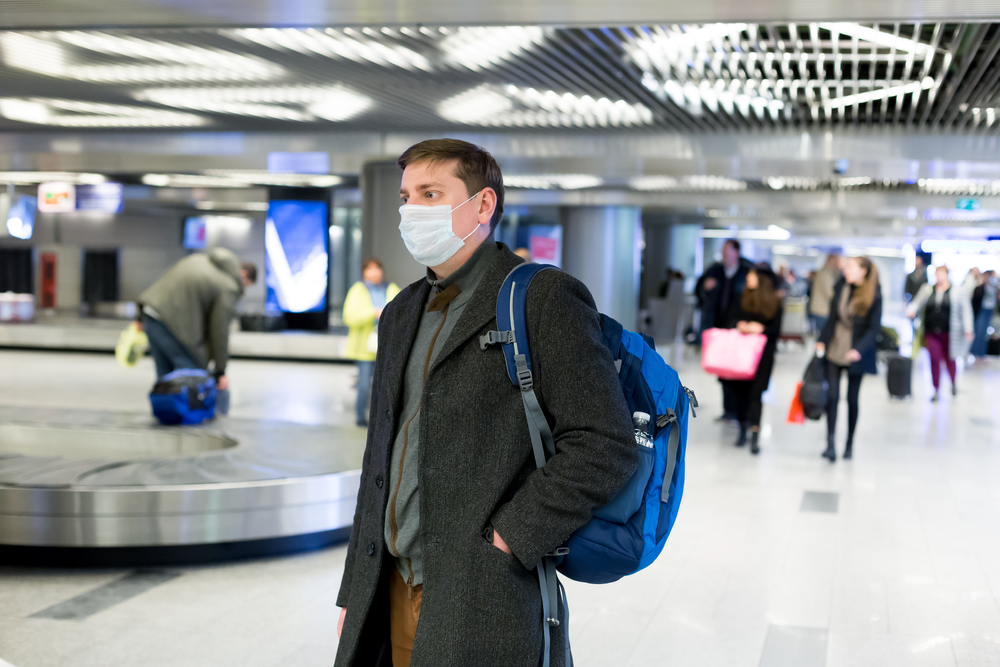Currently, health officials have reported tens of thousands of cases of COVID-19, the respiratory disease caused by the coronavirus. This situation has affected people globally, causing many people around the world to feel anxious about travelling and becoming infected. But what if you need to fly? Is it really safe to travel?
According to the European Centre for Disease Prevention and Control ( ECDC), the risk for travellers is considered moderate—but still precarious for flyers. The ECDC recommends that all travellers avoid nonessential trips to areas with the transmission of COVID-19. Because there is currently no vaccine against the coronavirus, everyone remains at risk. If you need to travel, follow these travel tips to ensure your safety—and the safety of others.
The State of Travel in the EU
While the COVID-19 pandemic continues to evolve rapidly, investigations for the spread and cure go on. The ECDC is closely monitoring this outbreak, providing risk assessments, public health guidance, and recommendations to the EU Member States and the EU Commission. Continue to follow the ECDC for updates and travel requirements while travelling during this time.
10 Travel Tips to Stay Safe While Traveling
If you’re travelling to places with the ongoing transmission of COVID-19, you should consider rescheduling your trip. Cancel or postpone your trip or if you have a fever and/or respiratory symptoms, such as cough or shortness of breath. If you need to travel due to unavoidable circumstances, follow these travel safety tips to ensure you arrive safely to your destination and beyond:
1. Use a hand sanitizer.
Use an alcohol-based hand sanitizer frequently when travelling. Airlines are regularly placing hand sanitizer dispensers at check-in counters and gates. Additionally, passengers are now allowed to carry 100 ml of hand sanitizer in a carry-on bag onto their flights.
2. Wash your hands regularly.
Wash your hands regularly with soap and water for a minimum of 20 seconds . If you don’t have soap and water, use an alcohol-based hand sanitizer instead. Rinse and dry your hands thoroughly with a disposable towel and use this same towel to turn off the water.
3. Avoid touching your face.
Avoid touching your eyes, nose, or mouth with unwashed hands, especially after coughing, sneezing, or blowing your nose. This essential travel tip is surprisingly harder than you might think; be super conscious of your hands.
4. Cover your mouth when you cough or sneeze.
You should cover your mouth and nose with a tissue when you cough or sneeze, or use your elbow instead of your hands. If you have allergies or may be prone to coughing on a flight, take precautionary measures to maintain good respiratory hygiene.
5. Avoid close contact with others.
Another crucial travel tip is to avoid contact with people who display any fever and/or respiratory symptoms. If you have symptoms once you arrive at your destination or when you get home, contact a doctor immediately.
6. Keep your distance from other people.
Keep your distance from others (about 1 metre ). When you’re standing in line for security or boarding a plane, try to distance yourself as much as possible from the next passenger. Remember to keep a safe distance when you arrive at your destination.
7. Know how to use masks.
You do not need to wear a mask unless you are caring for someone who may have coronavirus, according to the World Health Organization . You should, however, wear a mask if you are displaying symptoms. Avoid touching the mask while using it and remember to remove the mask from behind (do not touch the front of the mask) and discard it immediately in a closed bin.
8. Follow local travel advisories.
Follow COVID-19-specific travel safety tips from local authorities where you travel. The ECDC provides extensive, frequently updated information about travel requirements and health guidelines to follow while you travel.
9. Check for travel updates and alerts.
Many countries are enforcing new travel restrictions without giving much notice. Check in with your airline to make sure that your flight has not been cancelled or changed. Communicate with your hotel and check for updates and alerts both locally and where you’re heading.
10. Monitor your health when you return home.
Many EU countries encourage a 14-day self-quarantine upon return from a trip. If you develop a fever and/or respiratory symptoms, such as shortness of breath or coughing when you get home, stay inside and contact your doctor immediately. Be sure to mention your recent travels.
Travelling After the Travel Ban Is Lifted
The ECDC is in continuous communication with the European Commission and the World Health Organization regarding the assessment of the coronavirus outbreak with the latest travel safety tips and recommendations. Though the COVID-19 cancelled flights are not eligible for compensation, as an air passenger, you still have rights. Once the travel ban is lifted, there will likely be an influx of heavy travel and other requirements that might dramatically affect your next flight.
During the COVID-19 crisis, TravelRefund remains committed to helping you receive travel compensation if your flight has been delayed, overbooked, or cancelled for circumstances beyond your control. Did you know that you have cancelled and delayed passenger rights that entitle you to compensation under European Passenger Rights Regulation (EU 261)?
Understanding your delayed and cancelled passenger rights is an important next step to ensure you’re compensated fairly. Contact Travel Refund to learn more about your travel rights and how we can help you claim your compensation today.

